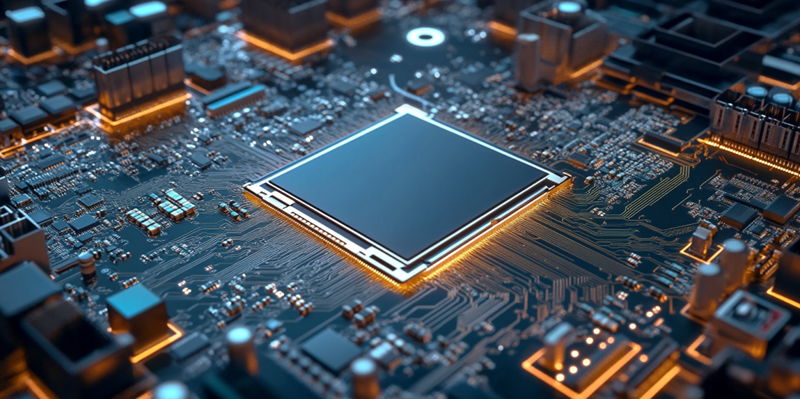In response to initial performance issues following the launch of its Zen 5 Ryzen 9000 CPUs, AMD has implemented a series of targeted updates to enhance overall performance. The rollout of the Zen 5 lineup occurred in two stages, starting with the release of the Ryzen 9700X and 9600X, followed by the introduction of the Ryzen 9900X and 9950X. Early reviews were not kind, citing a number of inefficiencies and performance lapses, prompting AMD to take swift corrective measures.
Boosting Performance Through TDP Adjustments
Increased TDP for the Ryzen 9600X and 9700X
One of AMD’s initial moves involved raising the Thermal Design Power (TDP) for the Ryzen 9600X and 9700X from 65 watts to 105 watts. This adjustment is not merely a numerical change but a substantial enhancement that users can activate through their PC’s BIOS settings without voiding the warranty. This increase in TDP has been reported to deliver a noticeable 10% boost in performance, particularly in multi-threaded tasks. For instance, users running computationally intensive applications such as video editing software or 3D rendering tools have experienced marked improvements in processing times and efficiency.
Besides multi-threaded tasks, the higher TDP also contributes to single-threaded performance enhancements, albeit to a lesser degree. Single-threaded applications, which include many popular gaming titles, have shown some performance gains. While these gains may not be as significant as in multi-threaded tasks, they nevertheless offer a better overall user experience. This move illustrates AMD’s commitment to ensuring that their consumer base gets the most out of their hardware, addressing crucial performance bottlenecks that were highlighted in initial reviews.
Reducing Cross-Core Latency on Dual-Chiplet CPUs
Enhancements for the Ryzen 9900X and 9950X
Dual-chiplet CPUs like the Ryzen 9900X and 9950X initially faced severe cross-core latency issues, with latency measurements reaching an aggravating 175 nanoseconds. For context, this is significantly higher than the latency observed in AMD’s previous generation, Zen 4, where latency was around 75 nanoseconds. Recognizing this substantial setback, AMD engineered optimizations that have successfully reduced this latency to approximately 75-80 nanoseconds, more in line with their previous models.
This reduction in cross-core latency directly impacts performance, especially in specific gaming scenarios where quick data transfer between cores is crucial for smooth gameplay. Gamers and content creators alike are seeing the benefits firsthand, with less lag and more fluid performance in demanding applications. By significantly lowering latency, AMD demonstrates its focus on performance reliability and responsiveness, proving its readiness to offer substantial improvements where necessary.
Software Optimization through Windows 23
Microsoft’s Updates Benefiting the Zen 5 Architecture
Another layer to AMD’s multifaceted approach comes through software optimizations, particularly with updates integrated into Microsoft’s Windows 23##. These updates have a profound impact on Ryzen CPUs, particularly enhancing branch prediction and overall gaming performance tailored to the Zen 5 architecture. These optimizations have resulted in gaming performance improvements ranging from 20% to 30%, a substantial software-based performance boost.
The integration of these improvements into the operating system itself ensures that a wide array of users can benefit without the need for additional hardware tweaks or user interventions. This partnership showcases a seamless blend of software and hardware optimizations aimed at utilizing the full potential of modern computing systems. It also reflects AMD’s strategic collaboration with software giants to provide end-to-end solutions that elevate user experiences.
Preparing for Future Memory Support with X870 Motherboards
DDR5-8000 Memory and EXPO Overclocking
AMD has not limited its enhancements to just the CPUs; the company is also preparing for future memory support by introducing X870 motherboards. These motherboards are set to support DDR5-8000 memory via AMD’s EXPO one-click overclocking technology, thus keeping pace with Intel’s offerings. The new standard in memory speeds will facilitate faster data processing and improved multitasking capabilities, vital for both gaming and professional workloads. This move brings AMD head-to-head with Intel, which is also prepping its future Z890 motherboards that may support memory speeds exceeding 9,000MHz.
AMD’s commitment to forward-compatible hardware is a positive indication for customers planning long-term investments in their systems. The introduction of DDR5-8000 memory is significant as it provides enhanced bandwidth, lower power consumption, and better performance for complex computing tasks. The EXPO overclocking technology simplifies the process, allowing users to unlock these benefits with minimal hassle. It’s clear AMD aims to ensure their platforms remain competitive, robust, and forward-compatible in an ever-evolving tech landscape.
Expedited Launch of Eight-Core X3D CPU
Potential Game-Changing Release
Following the initial launch of its Zen 5 Ryzen 9000 CPUs, AMD faced performance issues that drew criticism from early reviews. These challenges primarily affected the Ryzen 9700X and 9600X models, which were released in the first phase of the rollout. The second stage introduced the higher-end Ryzen 9900X and 9950X. The early feedback highlighted several inefficiencies and shortcomings in performance, compelling AMD to act promptly.
To address these concerns, AMD swiftly implemented a series of targeted updates aimed at optimizing and enhancing overall performance. These updates were specifically designed to correct the noted issues and improve user experience across all models. The company’s quick response was essential in maintaining customer confidence and ensuring the long-term success of the Zen 5 lineup.
AMD’s commitment to quality and performance has always been at the forefront of its technological advancements. By addressing and resolving the initial setbacks, AMD continues to demonstrate its dedication to innovation and customer satisfaction in the highly competitive CPU market.

